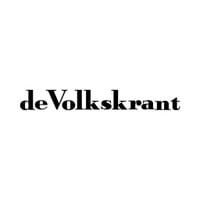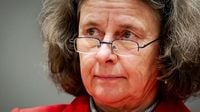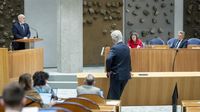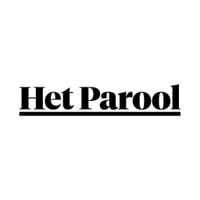On April 2, 2025, a parliamentary debate in the Netherlands resumed with Asylum Minister Marjolein Faber and Prime Minister Dick Schoof at the center of a heated discussion regarding Faber's refusal to sign royal decorations for five volunteers from the Central Agency for the Reception of Asylum Seekers (COA). This refusal has sparked outrage among opposition parties and raised questions about the unity of the cabinet.
The debate, which was temporarily suspended, resumed after significant pressure from the opposition, who demanded the Prime Minister's presence. Initially, Schoof had planned to skip the session, a decision that drew fierce criticism from various political factions. GroenLinks-PvdA leader Frans Timmermans labeled Schoof's absence as "unacceptable and damaging to his leadership," emphasizing that a Prime Minister should not avoid difficult situations.
During the debate, Faber defended her position, stating that she fully supports the decision made by Schoof and Minister of the Interior Judith Uitermark to sign the decorations in her place. In a letter sent to the Lower House on April 1, she claimed to be "100 percent" behind their decision. However, this stance did little to quell the growing discontent among her colleagues and the opposition.
Henri Bontenbal from the CDA accused Faber of trying to send a "political signal" at the expense of the volunteers, urging coalition parties to stop protecting her. He stated, "We need to uphold a democratic ethos. This minister seems to understand very little about that." Bontenbal further warned that if Faber continued to disregard her responsibilities, she would no longer deserve the trust of the Chamber.
Mirjam Bikker from the ChristenUnie described the situation as "hallucinatory," questioning Faber's judgment and demanding an apology for her actions. She expressed frustration that Faber prioritized her opinions over the contributions of dedicated volunteers. Bikker's remarks were echoed by D66 leader Rob Jetten, who criticized Faber for ruining the festive atmosphere typically associated with the royal decorations.
As the debate unfolded, tensions escalated. Timmermans accused Faber of being the "biggest bungler ever" in the cabinet, highlighting her failure to effectively manage her responsibilities. He stated, "This minister doesn't get anything done," and called for her to apologize and sign the decorations, asserting that the unity of cabinet policy was at stake.
In response, Geert Wilders, leader of the PVV, defended Faber, arguing that she had done nothing wrong and that a minister has the right to refuse to sign decorations. Wilders dismissed Timmermans' criticisms as unfounded, insisting that Faber's decision was within her rights.
The debate took a dramatic turn when Schoof ultimately decided to attend after all, following mounting pressure from the opposition. His presence was seen as crucial, given that the discussion centered on the unity of cabinet policy, a responsibility that falls squarely on the Prime Minister's shoulders. As the debate resumed at 12:15 PM, the atmosphere was charged with anticipation.
Despite the Prime Minister's attendance, the underlying tensions remained palpable. The absence of unity within the cabinet was evident, particularly regarding Faber's refusal to sign the decorations. This discord has led to speculation about the stability of the Schoof cabinet, with some coalition partners privately expressing that Faber's position is "untenable." Yet, a motion of no confidence against her was deemed unlikely to gain sufficient support.
As the debate progressed, members of the opposition continued to press for accountability. They questioned whether Faber regretted her decision not to sign the decorations and whether she would change her stance in the future. Political reporter Frits Wester noted that if Faber's answers to these questions were negative, it could further undermine the claim of cabinet unity.
Throughout the session, the opposition remained united in their demand for clarity and accountability. They argued that the cabinet must speak with one voice, particularly on issues that affect the public's perception of government integrity. The debate served not only as a platform for addressing Faber's actions but also as a reflection of broader concerns about governance and accountability within the current administration.
As the discussions continued, it became clear that the ramifications of Faber's refusal to sign the decorations extended beyond a single incident. The opposition's anger was not solely directed at Faber but also at the Prime Minister for his initial absence and perceived failure to manage the situation effectively. The call for Schoof to take a more active role in addressing the crisis within his cabinet was echoed by multiple parties.
The events of April 2, 2025, highlighted the fragility of the current government coalition and the challenges faced by leaders in maintaining unity amidst political turmoil. With the specter of a no-confidence motion looming, the outcome of this debate could have significant implications for the future of the Schoof cabinet.
As the dust settles from this tumultuous day in Dutch politics, the question remains: can the Schoof cabinet restore its credibility and ensure that such controversies do not arise in the future? Only time will tell if Faber will be able to navigate the political storm she has created or if her actions will ultimately lead to further instability within the government.









